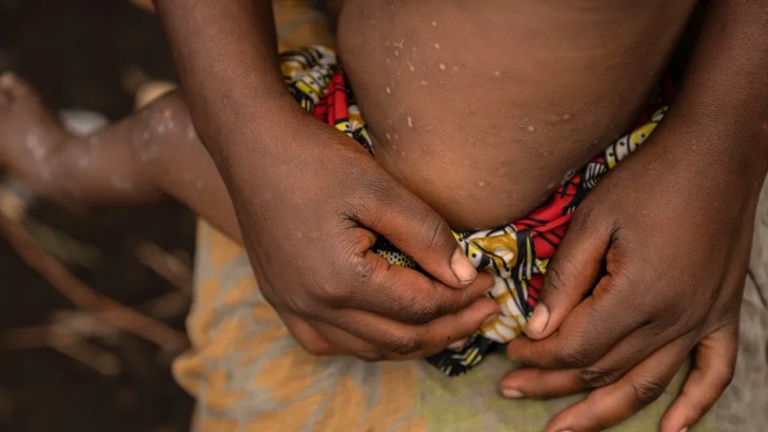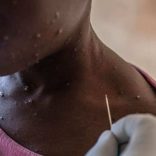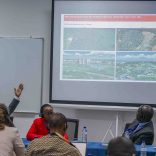Mozambique to receive US$69m support from Gavi and US$41.7m from the Global Fund
Mpox: Mozambique strengthens border surveillance; suspected cases in 9 provinces

FILE - For illustration purposes only. [File photo: Lusa]
The Mozambican government is strengthening border surveillance, with screening and testing teams, to stop the spread of mpox cases. The country currently has 17 positive cases and 92 suspected cases.
“There are currently no restrictions on the movement of people and goods. What we have been doing and recommending—and what we are working on together with other institutions—is strengthening surveillance in cross-border areas,” said the National Director of Public Health at a press conference in Maputo this Tuesday, where he also emphasized the commitment to community screening as the best method to stop the spread.
“Unfortunately, this isn’t an easy task. As you can see, our country has formal borders where we can place colleagues under surveillance, but it also has several entry and exit points that are often beyond our control, and that presents a major challenge,” added Quinhas Fernandes.
The current mpox outbreak is located in Lago, Niassa province, near Malawi and Tanzania, with 17 confirmed cases, all in stable condition.
Of the 92 suspected cases, according to today’s update, Niassa province leads with 57, Tete province with eight, Maputo city with seven—the same number as Maputo province—Manica province with four, Zambézia with three—the same as Cabo Delgado—Nampula with two, and Sofala with one case.
“All patients are stable [17 positive]; they are progressing quite satisfactorily in home isolation. At this time, we haven’t yet considered any of them being discharged from hospital because, in principle, we must monitor them for a period of 21 days,” clarified the National Director of Public Health.
Given these suspected and confirmed cases, Mozambique may proceed with requesting the vaccines, but only if the country develops into a large-scale outbreak of the infection.
“What we are doing is assessing the situation, preparing the dossier for a possible vaccine request, but as I said, the allocation of vaccines to the country will depend on global availability and the country’s specific epidemiological situation, compared to other regions, especially on the African continent,” the official said.
“In general, mass vaccination like that for COVID-19 is not the recommended approach for this situation, and unfortunately, currently, access to the vaccine globally is still limited (…). Given the country’s context of a highly localized outbreak, with well-defined chains, and a vaccine shortage, we currently believe that the measures being communicated on the ground are the most appropriate,” the National Director of Public Health concluded.
On July 24, the African Union (AU) public health agency warned of a vaccine shortage, despite the fact that cases and deaths from mpox in Africa are decreasing.
📍#mpox update in West Africa
Mpox continues to spread, with new cases reported in countries like The Gambia. Vaccine shortages remain a major challenge.
Watch our latest press briefing for more: https://t.co/vS8TsVS1J8#AfricaCDC #PublicHealth pic.twitter.com/rMspIRYoQl
— Africa CDC (@AfricaCDC) July 27, 2025
Mpox is a zoonotic viral disease, first identified in 1970 in the Democratic Republic of the Congo. In the current outbreak in southern Africa, since January 1, 77,458 cases of the disease have been reported in 22 countries, with 501 deaths.
The first case of mpox in Mozambique occurred in October 2022, with a patient in Maputo. The Public Health Emergency Operations Center (COESP), an agency of the National Directorate of Public Health, highlights the testing capacity that now exists in the provinces. With 4,000 tests available and 1,000 reagent analysis kits to identify the strains of positive cases, this represents a major improvement in three years.












Leave a Reply
Be the First to Comment!
You must be logged in to post a comment.
You must be logged in to post a comment.